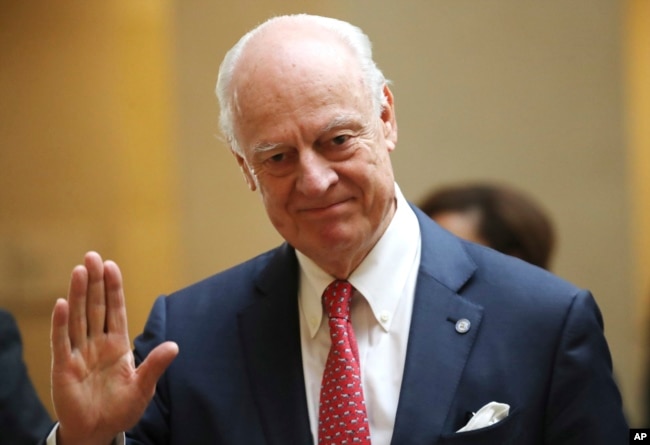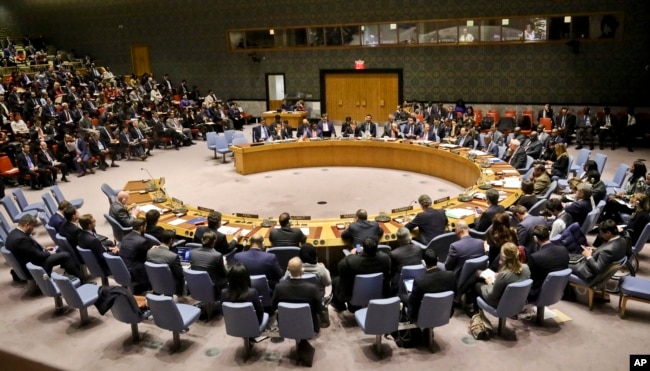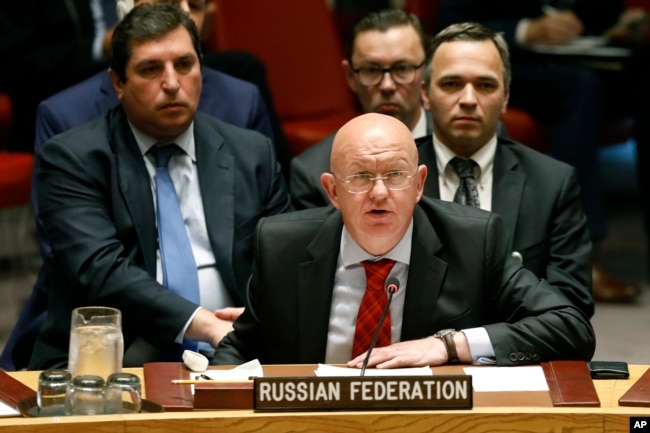The new U.N. special envoy for Syria said Thursday his goals in the period ahead are to achieve “concrete action” on detained and missing people and the convening of a committee to draft a new constitution for the war-torn country “as soon as possible.”, VOA News reports.
Geir Pedersen said he also wants to begin a sustained dialogue with the government and opposition “on building trust and confidence,” to engage a wide-range of Syrians, and to help the international community deepen its dialogue on achieving a political settlement of the eight-year conflict.
Pedersen’s first briefing to the U.N. Security Council indicated a much broader approach to trying to end the war and restore peace to Syria than his predecessor, Staffan de Mistura, who spent his last year trying unsuccessfully to form a constitutional committee.
The Security Council has been deeply divided over Syria, with the U.S. and its allies backing the opposition and Russia and China supporting Syrian President Bashar Assad’s government along with Iran and other countries. The result has been near-paralysis of the U.N.’s most powerful body.
Pedersen focused on a resolution the council did succeed in adopting unanimously in December 2015 endorsing a road map for peace. It contains “all the elements for a political solution,” he said, and calls for “a truly Syrian-led and owned political process” which he stressed is key if any peace deal is to be sustained.
The new envoy noted that key international players “express emphatic support for a political settlement for Syria” and agree on the need to counter terrorist groups.
“They share an appreciation of the realities of 2019 and that real diplomacy is needed to address them,” Pedersen said, noting that currently “different formats make different contributions.”
In the early years of the Syrian conflict there was a large international contact group, but in recent years Russia, Iran and Turkey — the guarantor states in the so-called “Astana process” aimed at ending the violence in Syria — have become the key international diplomatic players in Syria.
Pedersen said he believes “there are real possibilities for strengthening international support,” and a need to be “creative.”
“If we are to see how issues can be unblocked and how to help the parties move in a Syrian-led and Syrian-owned process, a common forum where key states engage seriously on those issues may be needed,” he said without elaborating.
As he deepens discussions with the government and opposition, Pedersen said, “I sense a wide acceptance of the notion that convening a credible, balanced, inclusive and viable Syrian-led and owned constitutional committee, under U.N. auspices in Geneva, can be important to revitalize the political process.”
“It can be a door opener to a deeper dialogue and genuine negotiations,” he reiterated.
Pedersen expressed hope that “we can finalize the rules of procedure and the composition of the committee in the near future.”
De Mistura said at his last press conference in December that an “an extra mile” was needed to form a constitutional committee because a list of participants from civil society submitted by Russia, Iran and Turkey wasn’t acceptable to the United Nations.
Pedersen also said some challenges must be addressed urgently, including the future situation in Syria’s northeast, where U.S.-backed forces are fighting the Islamic State group in the last village it controls and a cease-fire in the last opposition-held stronghold in Idlib remains fragile.
Russia’s U.N. Ambassador Vassily Nebenzia expressed hope that soon the Astana guarantors “will manage to achieve mutually acceptable solutions on the Idlib de-escalation zone and also the northeast.”
He said Russia shares many of Pedersen’s assessments and pledged support to the U.N. envoy’s efforts to restore peace to Syria.
“The key words that you mentioned is the need to restore, rebuild lost trust, not just within Syria but also around Syria, all of the players that are working on Syria,” Nebenzia told Pedersen.
France’s U.N. Ambassador Francois Delattre said an inclusive political solution is the only way to avoid “a new black decade in Syria” — and he urged the Security Council to overcome its divisions and unite in helping to restore peace to Syria.



